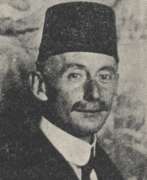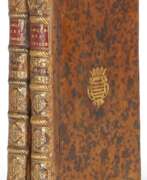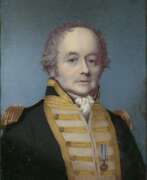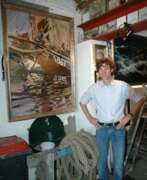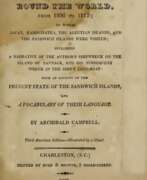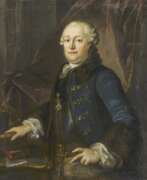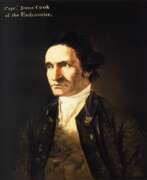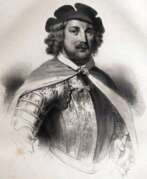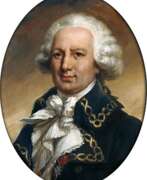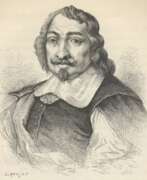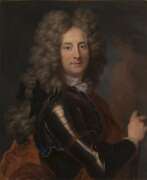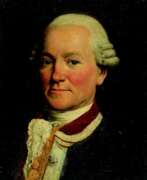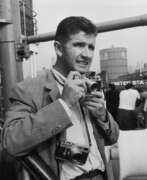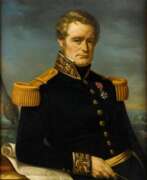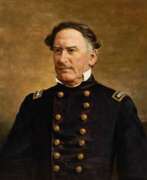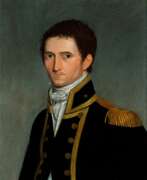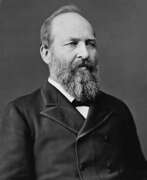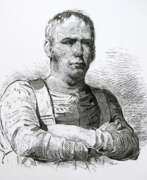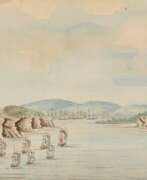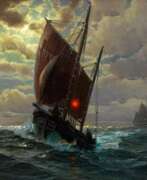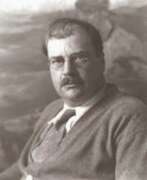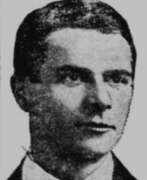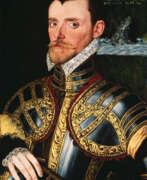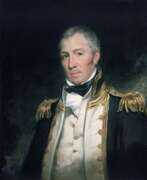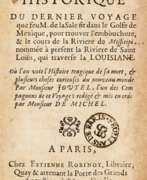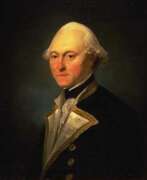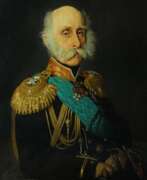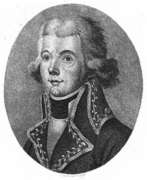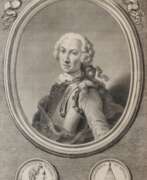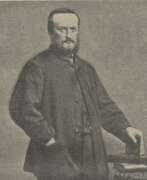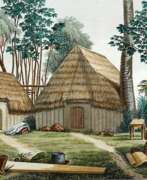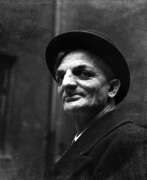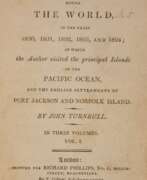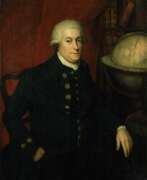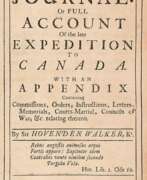Sailors
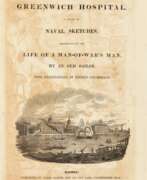

Matthew Henry Barker is a British writer, journalist and editor.
Barker is known by his pen name The old Sailor. As a young man he served in the Royal Navy and worked for the East India Company before commanding his own schooner and spending several months in captivity.
From 1825, Barker worked as an editor and author for several periodicals and wrote many fascinating accounts of the sea from his own rich experience. Many of these stories, popular at the time, were illustrated by the famous 19th-century artist George Cruikshank.
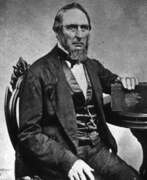

Owen Chase was an American sailor and writer.
Chase became famous after publishing his detailed account of how a whaling ship, on which he was first mate captain, rammed and sank a sperm whale. The captain and crew spent three months at sea in open boats. Of the twenty crew members, eight survived when they managed to reach land.
This book, published in 1821, inspired the writer Herman Melville to write his famous novel Moby Dick.
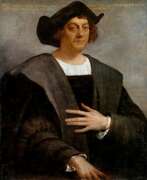

Christopher Columbus (Spanish: Cristóbal Colón, Latin: Christophorus Columbus, Italian: Cristoforo Colombo) was a medieval Spanish navigator of Italian origin who discovered the New World in 1492.
About the exact origin of Columbus scientists argue to this day. He already from his youth had a brilliant knowledge of mathematics, knew several languages, including Latin. Columbus was familiar with the teachings of ancient Greek philosophers and thinkers who depicted the Earth as a sphere, not flat, as was believed in the Middle Ages. Christopher was also trained in the art of navigation and made his first voyages as a young man in the Mediterranean Sea, later sailing to Africa and participating in a northern expedition through the British Isles and Iceland.
Gaining experience, studying geography and maps, Columbus assumed that it was possible to reach India by the western route. He sought financial support from European monarchs, but only the Spanish monarch was interested in the prospects. He agreed and borrowed money to outfit a squadron of ships to find a western route to India.
Christopher Columbus made four historic voyages to the shores of America: August 3, 1492 - March 15, 1493; September 25, 1493 - June 11, 1496; May 30, 1498 - November 25, 1500 and May 9, 1502 - November 7, 1504. Expeditions of Columbus for the first time made information about the lands in the west common knowledge and began the colonization of America by Europeans. But the discoverer of new lands to the end of his life was convinced that he had discovered the richest Western India.
From the last expedition Columbus returned to Spain terminally ill, his last money he spent to pay debts to its participants. Two years later, the discoverer of the New World died in poverty in a small house. Columbus's discoveries, accompanied by the colonization of land, the establishment of Spanish settlements, enslavement and mass extermination of the indigenous population, which he called Indians, were of world significance.
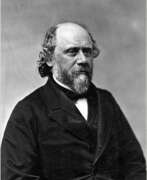

Richard Henry Dana Jr. was an American lawyer, politician, and writer, and a prominent abolitionist.
His father was the Romantic poet and critic Richard Henry Dana Sr. (1787-1879). Richard Jr. did not finish his studies at Harvard College and went to California as a sailor. Two years later, having gained a wealth of experience, he completed his studies and became head of the American bar, an expert on maritime law and an advocate for the rights of merchant seamen.
In 1840, Dana published his autobiographical book Two Years to the Mast, which immediately gained wide popularity. Dana's description of his voyage to California, which was virtually unknown to Americans at the time, became the best contemporary description of the territory captured by the United States just a few years later. He describes the lives of sailors in the ports and their work processing hides on the coast, and pays close attention to the daily lives of the peoples of California, including Hispanics, Native Americans, and Europeans.
In 1841, Dana published The Seafarer's Friend, which became the standard reference book on the legal rights and responsibilities of seamen. He defended many ordinary seamen in court. Despite vigorous opposition, Dana provided free legal aid to blacks as well. Both as a writer and a lawyer, he was a defender of the oppressed, from sailors to runaway slaves and freedmen.
He was U.S. Attorney for the District of Massachusetts from 1861 to 1866 and a member of the Massachusetts legislature from 1867 to 1868.
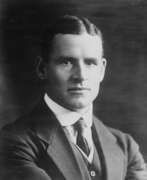

Admiral Edward Ratcliffe Garth Russell Evans, 1st Baron Mountevans was a Royal Navy officer and Antarctic explorer.
Evans was seconded from the Navy to the Discovery expedition to Antarctica in 1901-1904, when he served on the crew of the relief ship, and afterwards began planning his own Antarctic expedition. However, he suspended this plan when offered the post of second-in-command on Robert Falcon Scott's ill-fated Terra Nova expedition to the South Pole in 1910-1913, as captain of the expedition ship Terra Nova. He accompanied Scott to within 150 miles of the Pole, but was sent back in command of the last supporting party. On the return he became seriously ill with scurvy and only narrowly survived.


Philip Morin Freneau was an American publicist, editor, and known as the "poet of the American Revolution".
After graduating from Princeton University, Freneau taught school and studied to become a minister. With the outbreak of the American Revolution, he began writing scathing satire on the British and the Tories. During a two-year voyage to the Caribbean islands, he created the poems "The Beauties of Santa Cruz" and "The House of Night," and in 1778 he became involved in the war. After his release from British captivity, Freneau wrote a book in verse, "The British Prison Ship" (1781).
After serving as a sea captain for several years, Freneau took up journalism. In his National Gazette newspaper in Philadelphia, he sharply criticized George Washington.
Freneau's poetry, which accompanied him throughout his life, covers a variety of subjects, including political situations, American Indians, nature, the sea, and naval battles. His political poems are often satirical, but his nature poems are very lyrical.
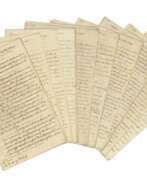

James Mario Matra, born James Magra, was an American of Corsican descent, diplomat and sailor.
Matra became famous for accompanying James Cook on his first voyage to the Pacific and for painting the voyage, although his participation in it was accompanied by scandal. In 1783 he proposed settlements in New South Wales, Australia, for American Loyalists and British convicts. But Matra's hopes for an official position in the proposed colony failed, and in 1786 he accepted the post of consul in Tangier, where he remained until his death.
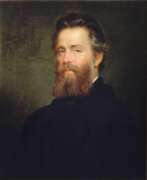

Herman Melville was an American writer, poet, and sailor.
Melville's hardship-filled youth ended on a whaling ship. He returned from his adventures in the South Seas in October 1844, and wrote "Taipi" the following spring. The book was based on the events surrounding Melville's desertion from the whaling ship Acushnet in 1842 and subsequent adventures in the Marquesas Islands.
Melville wrote several other novels and short stories and many poems, but during his lifetime his works were little appreciated by his contemporaries. Only in the 1920s began to rethink Melville, and he was recognized as a classic of world literature. World fame Melville already in the 20th century brought irrational novel "Moby Dick".
